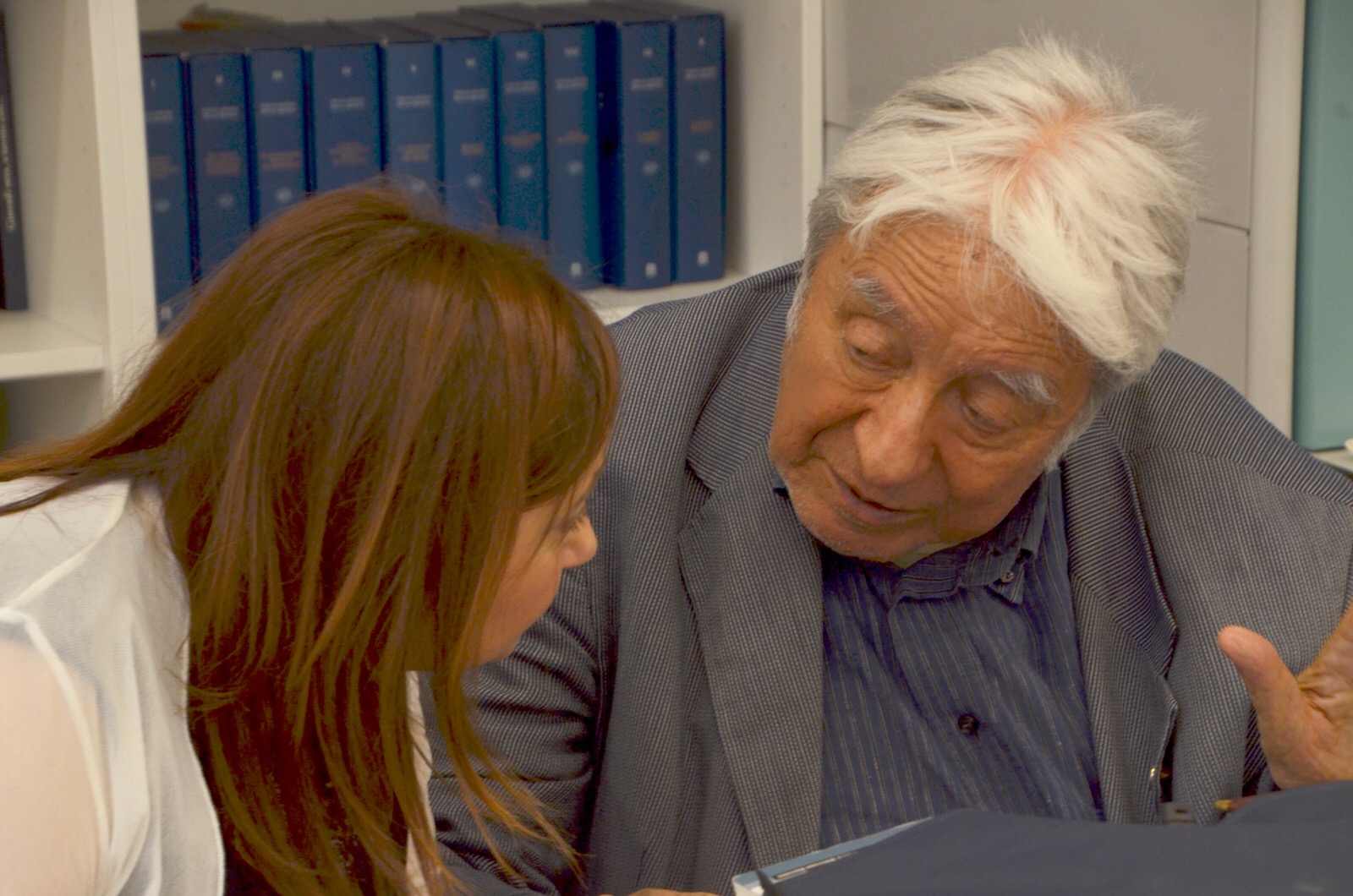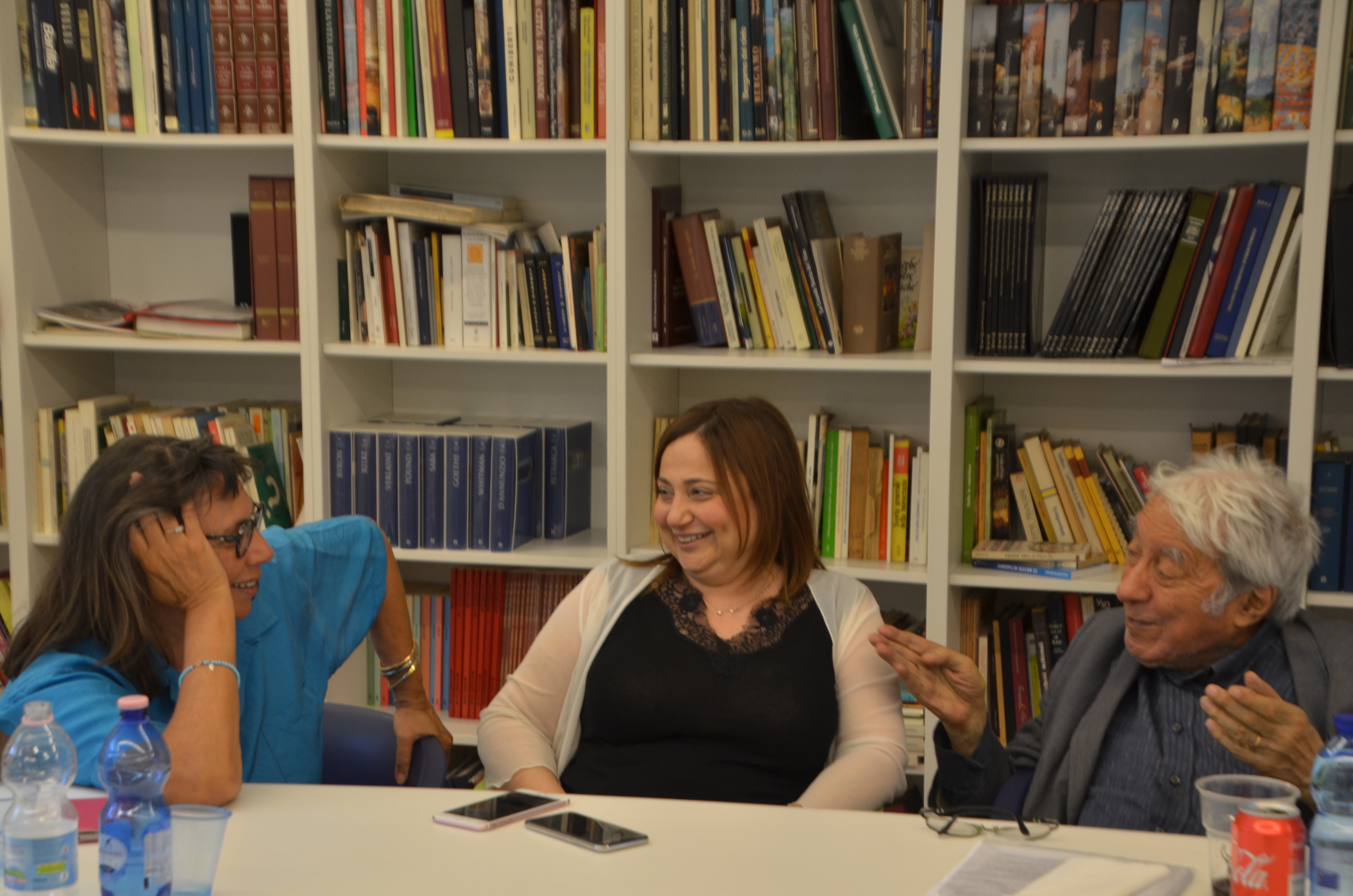
The third Summer Convention of the Enzo Spaltro Foundation and the University of the People, entitled “PSYCHOLOGICAL ECONOMICS”, was held on last Thursday June 21st in Argelato. The speakers around the table, Enzo Spaltro, Pier Paolo Baretta, Sara Cirone, Nino Galloni, Isabella Covili, Mauro Sirani, Domenico Arato, Gabriele Fava, Paolo Pellegrini e Daniele Ravaglia, discussed the subjects linked to the changing times we are currently facing.
The future will be strikingly different with respect to what we are currently experiencing and very often, we do not perceive how quickly things are changing and do not realize what is going on. The high-level contributions focused on the framework of the very lucid analysis of Prof. Enzo Spaltro, who pointed out how important it is to understand how the future cannot be foreseen, but projected. To do so, it is necessary to go through a coral development model, a common sharing and diffusion of well-being.
Economics and psychology: two recent disciplines
The Bolognaise Professor explained with a lectio magistralis how psychology and economics are two comparatively recent disciplines that, in time, merged in psychological or psychic economics, which puts psychic above economics.
What is the meaning of psychological economics?
The subjective dimension that privileges the creation of well-being in the present or in the future is the aesthetical dimension (for which Professor Spaltro has invented the term “bellessere” – well-being in beauty – since beauty is the hope of a future well-being). A question looms behind the statement that the future cannot be foreseen, but projected: how can we project it? To project the future means to enter the aesthetical world, not abandoning the present. Great problems hide behind the present: war or peace? Poverty or wealth? Revenge or forgiveness? It is a complete change of definition.
 From well-being to well-being in beauty
From well-being to well-being in beauty
The economy has increased its importance today and the kind of power, which used to be in the hands of religions, thinking of investitures, armed conquests or material wealth, has recently flown in the pursuit of well-being, both physical and psychic. It is necessary nonetheless that well-being becomes well-being in beauty (a projection of well-being in the future), but to do so, it is not healthy that wealth accumulates in the hands of a few, it is rather necessary that well-being becomes widespread. When a portion of society lives in poverty, the whole society is sick. If someone starves in a city, the whole city is starving. Culture has an infection. In Italy, the level of poverty is a subjective data beyond statistics. A million and a half are starving. A system is necessary to ensure that no one should starve. It would be advisable to implement the five points of the Scandinavian Countries: everyone shall be entitled to food, housing, public health system, school and leisure (not a vice, rather a legitimate need). Without time for leisure – which dwells in the distinction between my time and the time of others – there is no well-being.
From monopoly to the restricted group
How to act? There are three possible development models:
- Monopoly. Common thinking goes that unity, the individual, is the best. As a matter of fact, dis-unity is fundamental. The psychological diversity is fundamental.
- Couple dynamics
- Culture of the restricted group. The development of well-being among humans goes through a conflictual relationship between scarcity and abundance, where abundance is the growth system of the restricted group, whereas scarcity the one of the individual/monopoly. Economical “scarcification”, in fact, multiplies itself: men alone in charge of power have always devoted themselves to behaviours of money multiplication, preventing the majority of the society from accessing such multiplication effect. Our own culture reflects this conflictual origin of well-being and wealth: it seeks abundance but refuses it for fear of other people’s power. For this reason, scarcity is functional to the monopoly, since it serves the scope to maintain power. Whereas abundance – which mirrors the development system of the restricted group – goes through work, a widespread well-being. It is a way to find ideal systems to reach a condition of well-being in beauty.
We ought to go from one to three
We need to go through a coral model of development. From a monarchic, singular model, to a plural model: from the individual to the subject, from the subject to the citizen, to the people. Yet this is not enough. Diversity is what can save us from self-destruction. Forgiveness enables us to think of the future. Otherwise, vengeance will occupy all our future. We need a new way of thinking, a new dictionary.
Beauty will save the world
The economy is becoming like theology. Economists are becoming kind of priests of a new religion. There is no objectivity in the economics, just an instrumental behaviour in favour of a few, to draw advantages back. A complete re-writing is necessary, a new start from scratch. It takes a new development model. The dominants try to keep the people subdued through uncertified economic theories. The antidote to dominants keeping the people subjected through catastrophic theories are equalitarian policies (hence the five Scandinavian points), creating development and promoting the passage from citizen to person, from person to community, from community to species. If the level goes up, actually, the possibility to enhance the temporal horizon is granted and, with it, a more extended well-being in beauty, a subjective and widespread well-being. “Beauty will save the world” – Dostoevskij used to say. What is plural makes us free, what is different makes us free and compensates for losses in society. The opposite of war is the plural that pulls down the monopoly. A new dictionary needs to be created. Learning is the antidote to being subdued. Ignorance is the mother of slavery. It takes a new way of thinking, a new dictionary, a new economy that includes anthropology.

An example of development model
Sara Cirone shares her vision with respect to the corporate management. We are evolving towards immateriality, in an economical vision, which puts humans and their needs in the focus. It is therefore worth wondering what means value for humans. Within a company, for instance, immaterial goods beyond money can be produced. We are talking of a total upsetting of paradigms: if we analyse in an anthropological perspective a balance sheet, we realize that the corporate community generates value, know-how, relations to the territory and the people (clients, suppliers, institutions), that are much stronger than any currency. The micro-group that generates value, accounted through the integrated report, is the real corporate value. Sara Cirone therefore explains work as an immaterial good. The company takes in this sense a different economical meaning, in which financial aspects merge with legal aspects linked to the natural, organizational, relational and human capital.
Participation and well-being in beauty
If companies display to all the value they create, all those unpleasant situations (yet more frequent) in which people just obey other people’s decisions, without questioning the reasons behind them, would disappear. The Integrated Report, on the contrary, creates a participative mechanism enabling every single person to be part of a community and contribute to the value-creation within the same. In so doing, all monopolistic or dual models collapse and participative micro-groups blossom, enhancing the level of active participation and the will to be a person within a community, to participate in the value-creation. If everyone feels to be part of a community and active in the value-creation, well-being becomes a patrimony for all, viewing the development of civilization